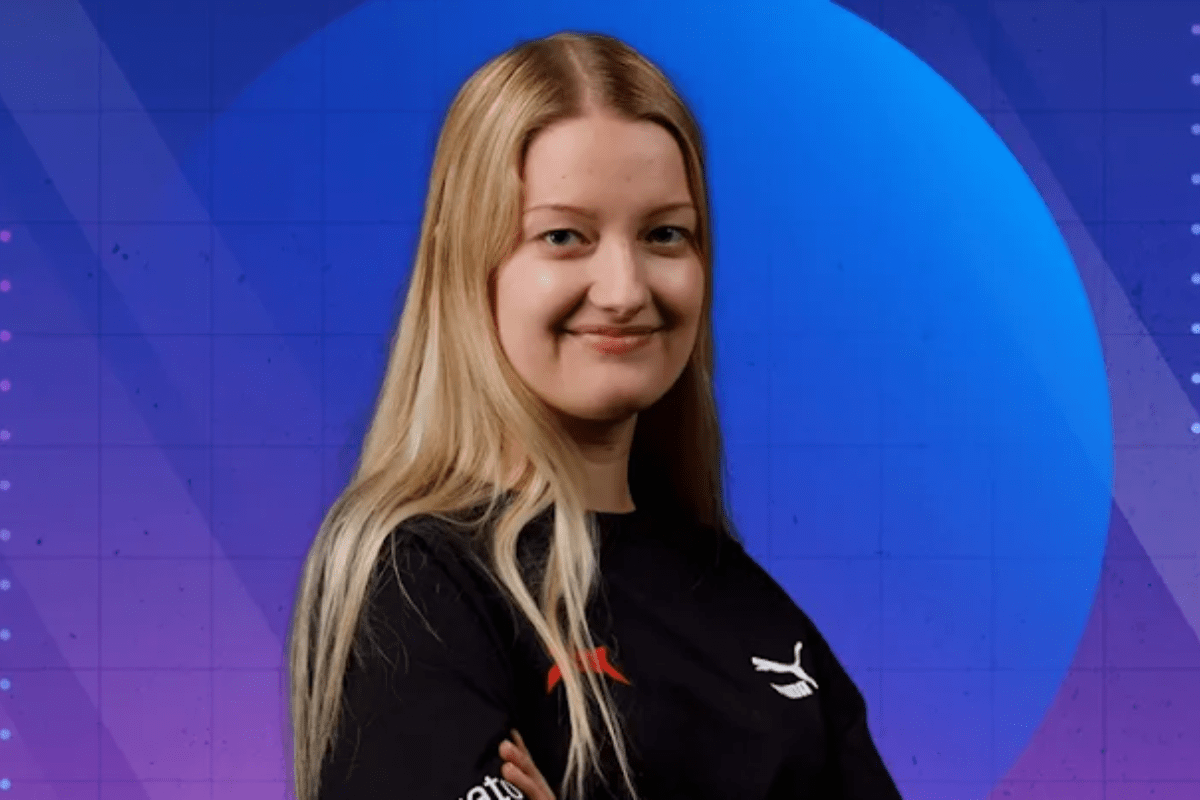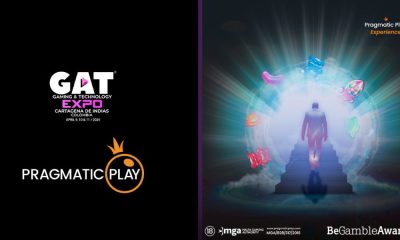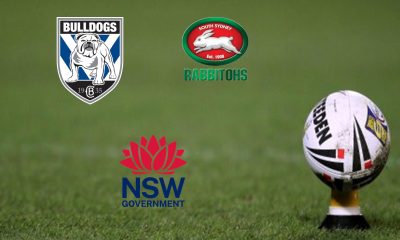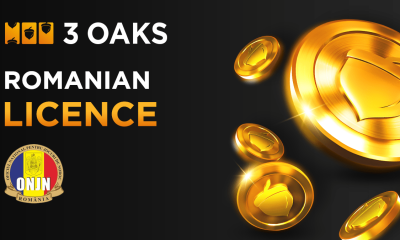eSports
ESIC Publicly Addresses False Narrative That the Commission Works for the Esports Betting Industry
The Esports Integrity Commission has, over the past few years, mistakenly been accused of working for the esports betting industry or being an organisation formed by the betting industry for the betting industry’s purposes. Whilst we have historically tried to address this misconception privately, it has now surfaced again in a way that damages the integrity of esports and the Commission in a way that needs to be publicly addressed.
BACKGROUND CONTEXT OF STATEMENT
First: In Nevada a Bill being sponsored through the State Senate by Senator Ben Kieckhefer, SB 165, seeks to establish an Esports Commission for the regulation of esports related activities in the State. In the sponsoring process, the Judiciary Committee considering SB 165 were told that ESIC, (who has worked with the Nevada Gaming Control Board since 2016 and was a founding member of the Nevada Esports Alliance) was in favour of the Bill. This is false. ESIC opposes SB 165 and has now taken steps to provide explanations to the Committee relating to its position. However, quite apart from certain parties purporting to speak on our behalf without authority, an underlying narrative emerged that: ‘ESIC’s views should be dismissed because the Commission is a servant of the betting industry’.
Second: The same false narrative was put forward to the Entertainment Software Association (“ESA”), the body representing most video game publishers and developers and all of those who publish titles prominently used in esports, by some of its members urging the ESA not to engage with ESIC because ESIC was alleged to “work for the betting industry”.
Third: Disaffected players banned by ESIC for betting related offences and some of their supporters have been reported to be coordinating a broad effort to spread this same false narrative that ESIC works for and serves the betting industry in an attempt to undermine the legitimacy of competitive integrity in esports. This coordinated effort has been reported to ESIC to include rhetoric such as ‘ESIC falsely asserting certain matches are fixed so that the betting operators don’t have to pay out the winning bets on those matches’. This is both an ignorant and damaging narrative not only to ESIC but to the integrity of esports broadly. Such assertions would be entirely antithetical to the purpose and demonstrated work ESIC has undertaken for the sake of competitive integrity in the esports industry for more than five years.
STATEMENT
Despite the differing points of origin and the various malicious motives of those propagating them, all of these narratives need to be addressed and resolved and so ESIC Commissioner, Ian Smith, has considered it prudent to make the following statements:
“ESIC is neither for or against betting on esports. We are not advocates for betting nor crusaders against it.
It is noted, however, that betting on esports is a form of entertainment for most bettors and drives sponsorship revenue and fan engagement for the esports ecosystem. Conversely, the existence of betting opportunities does also raise challenges including, of particular concern to ESIC and central to our mission, the incentive for punters to commit betting fraud by match-fixing. In this respect, our role is to protect the esports industry from that danger.
ESIC exists for the esports industry; primarily for the protection of the players who would be the first and main casualty of any match-fixing scandal (please refer to the detrimental effects that match-fixing has historically had on the competitive Starcraft2 esports scene following the 2015/16 match-fixing scandals in Korea).
When betting fraud is perpetrated, competitive integrity is tarnished (among other negative outcomes). Coincidentally, the legitimate esports betting industry also suffers loss when betting fraud is committed. Therefore, it is of common and synergistic interest to both the esports industry and the betting on esports industry to address the issue of match-fixing through ESIC.
In fact, it is impossible to combat match-fixing without working with the legitimate esports betting industry. Betting data is at the heart of determining whether or not a match might be fixed and betting data is the key evidence in any prosecution of a match fixer. Furthermore, every traditional sport works with the betting industry to combat match-fixing and relies upon such data in a similar manner. This approach is not unique to ESIC.
ESIC is a not for profit members association – we are owned by our members. We have two categories of membership: Our esports members (primarily Tournament Organisers) and our Anti-Corruption Supporters (primarily betting operators, but also government and state gambling regulators, law enforcement, monitoring companies, data providers and industry bodies). From a constitutional point of view, the two do not overlap. Only the Esports Members determine the strategic aims and priorities of ESIC. The Anti-Corruption Supporters participate in our Suspicious and Unusual Betting Alert Network in service of ESIC and our Esports Members. In other words, ESIC works with the betting industry on behalf of the esports industry; we do not work for the betting industry. Accordingly, this dynamic serves only to promote competitive integrity and legitimacy of esports competitions.
Contrary to some assertions, the betting industry does not use us to avoid making legitimate payouts. The primary benefit for betting stakeholders which engage with us is access to what our Suspicious and Unusual Betting Alert Network sees (a network which they also contribute data to).
Importantly, some players are asserting that their betting activity on the game that they play professionally was “innocent”. With respect, that is either naive or disingenuous. No traditional sport allows its professional participants to bet on the sport they play for a living. In the cases ESIC has dealt with, the players against whom we have taken action have bet on the game, league, tournament or match in which they have participated. There is no scenario in which this is acceptable and we will continue to prosecute players who do so where we have jurisdiction. At the highest level of any esports game, the players all know each other, have played with and against each other and have both inside information and the potential to influence each other in a way that gives them an unfair advantage in betting markets and undermines the perception of competitive integrity. In many countries it is also illegal or criminal. Consequently, we are unapologetic about our rule prohibiting betting on the game they play professionally or semi-professionally. This is for the protection of the esports ecosystem and the players in particular. It is not a service to the betting industry but a service to the esports industry broadly in the interest of youth protection, competitive integrity and commercial longevity.”
Conclusion
Individuals attempting to propagate the narrative that ESIC works for the betting industry either have their own adverse agenda or are naïve about the realities of betting and the relationship between esports and betting on esports.
ESIC accepts that the existence of betting in esports is a contentious matter for some people and that they would rather it didn’t exist, but that is not an excuse to ignore the challenges posed by its existence. Any extension of opposition to betting in esports which operates to prohibit or hamper ESIC from effectively engaging with and mitigating the issue of match-fixing through sourcing data from Anti-Corruption Supporters, however, should be entirely discouraged and expelled from the industry. The stark reality is that match-fixing poses a real and demonstrable threat to the youth, competitive integrity, and commercial viability of the esports industry globally. Accordingly, ESIC implores all stakeholders Interested in the common good of esports to work together to combat such threats. Indeed, that includes, of necessity, close cooperation, via ESIC, between the esports ecosystem and the esports betting industry.
NOTE: THIS STATEMENT DOES NOT CONSTITUTE THE INTENDED RELEASE RELATING TO THE AU CS:GO INVESTIGATION. A SEPARATE RELEASE WILL BE MADE RELATING TO THAT INVESTIGATION IN DUE COURSE.
Asia
Team ATK Oshun excels at 2024 Online Championships held on 13 April 2024

Mind Sports South Africa’s (MSSA) 2024 Online Championships held on 13 April 2024 showed sterling results.
The championship was yet another chance for many esports athletes to qualify for MSSA’s National Team Trials to be held on 25 May 2024 at which the team will be selected to officially represent South Africa at the African Qualifiers which lead up to IESF’s 16th World Esports Championships to be held in Riyadh, Saudi Arabia in October and November 2024..
All Registered Players who have finished in the top three places, or the top 20% – whichever is greater, are entitled to enter trials.
However, it must be remembered that all players must have a valid passport to participate in the National Team Trials.
It was indeed exciting to watch just how much all the female teams have improved.
Team ATK Oshun (ATK Club Sport) being a female team astounded all with their skill and sportsmanship. The team demolished all ATK Club Sport opposition to ultimately won the premier event overall and qualify for the National Team trials to be held on 25 May 2025.
IESF’s 15th World Championships will be played to the following titles:
- Counter-Strike 2
- Counter-Strike 2 – Female division
- DotA 2
- eFootball
- Mobile Legends, Bang Bang
- Mobile Legends, Bang Bang – Female division
- PUBGM
The high standard of play saw 37 Registered Players from six provinces being awarded Provincial Colours. Only Limpopo, Free State, and Northern Cape did not have Registered Players who did not earn provincial colours.
| Title | Name of player/team | Club | Provincial Colours awarded |
| Clash Royale – Premier | Johan Coetzee | Middies | Mpumalanga |
| Clash Royale – High School | Aryan Maharaj | PR0NHS | |
| Counter Strike: 2 | ATK Oshun | ||
| Kaylee Ludick | ATK Club Sport | Gauteng | |
| Jessica Eleez Greeff | ATK Club Sport | Gauteng | |
| Christin Brazier | ATK Club Sport | Gauteng | |
| Megan van der Westhuizen | ATK Club Sport | Gauteng | |
| Kayhla Rose Calder | ATK Club Sport | Gauteng | |
| DotA – Premier | ZAG DOTA 1 | ||
| Suhail Khan | ZAG Academy | Gauteng | |
| Travis John Waters | ZAG Academy | Western Cape | |
| Mark Kilian Lehle | ZAG Academy | Gauteng | |
| Mohammad Dhooma | ZAG Academy | Eastern Cape | |
| Nicholas Dammert | ZAG Academy | Gauteng | |
| eFootball – Premier | Aslam Parker | PES Society | Gauteng |
| FIFA 24 – High School | Daiyaan Hendricks | PES Society | Western Cape |
|
Mobile Legends – Premier
|
Mavericks | ||
| Matthew Tatalias | Mavericks | Gauteng | |
| Damian Bransby | Mavericks | Western Cape | |
| Preshan Pillay | Mavericks | Gauteng | |
| Mohammad Azhar Ansari | Mavericks | KwaZulu Natal | |
| Taygan Gabriel | Mavericks | KwaZulu Natal | |
| Luke Green | Mavericks | Western Cape | |
|
Mobile Legends – Premier – Female
|
AHG | ||
| Je’nielle Cavanagh | PES Society | Western Cape | |
| Inez Pringle | PES Society | Western Cape | |
| Salma Parker | PES Society | Western Cape | |
| Ra’isha Prout | PES Society | Western Cape | |
| Fatimah Prout | PES Society | Western Cape | |
| Mia Anthony | PES Society | Western Cape | |
|
PUBGM
|
Team uEnvy | ||
| Richard Henry | ZAG Academy | Eastern Cape | |
| La-eeq Arendse | ZAG Academy | Western Cape | |
| Kyle Dudley | ZAG Academy | Western Cape | |
| Clayton Leak | ZAG Academy | Western Cape | |
| Rocket League – Premier – 1 v 1 – Premier | Nathan Strange | Hoërskool Klerksdorp | |
| Rocket League – Premier – 1 v 1 – High School | Luther Peens | Hoërskool Klerksdorp | |
| Street Fightter V – Premier | Marnus van der Merwe | Hoërskool Klerksdorp | North West |
| Tekken 8 | Stasch Cloeta | Team PlayBell | Western Cape |
|
Valorant – Premier
|
TuksValorant | ||
| Tapiwanashe Keith Matema | TuksEsports | Gauteng | |
| Kyle Halvorsen | TuksEsports | Gauteng | |
| Jaden Connor Swarts | TuksEsports | Gauteng | |
| Ronald James Tyler Wheeldon | TuksEsports | Gauteng | |
| Alejandro Luca Sartini-Kruger | TuksEsports | Gauteng | |
| Armand Pierre van der Colf | TuksEsports | Gauteng | |
| Sportsmanship Award | Je’nielle Cavanagh | PES Society | |
The post Team ATK Oshun excels at 2024 Online Championships held on 13 April 2024 appeared first on European Gaming Industry News.
Asia
Maharashtra Government rewards state’s Asian Games 2022 Esports athletes with INR 10 lakhs; marks historic moment for Indian Esports
In a groundbreaking move, the Directorate of Sports and Youth Services of the Government of Maharashtra has rewarded a significant amount of INR 10 lakhs to each Esports athlete of the state who represented India in the Asian Games 2022, held in Hangzhou. This marks a historic moment for Indian Esports, as it is the first time any state has included Esports alongside mainstream sports in prize money rewards for its state players in a major tournament. The recipients of this monetary reward include Darshan Bata, captain of the DOTA 2 team, along with his teammates Krish Gupta, Ketan Goyal, and Shubham Goli, as well as League of Legends athlete Samarth Trivedi.
Expressing his gratitude, Darshan Bata, the captain of the DOTA 2 team who hails from Mumbai, said, “I would like to express my sincere thanks to ESFI and the Maharashtra government for honoring us and recognizing and supporting Esports.”
Esports made its debut as a full-fledged medal event at the Asian Games 2022, where a total of 476 athletes from 30 different countries competed for gold medals across seven titles. India participated in four of these titles, including DOTA 2, EA Sports FC Online, League of Legends, and Street Fighter V: Champion Edition.
“It has been a great experience at Asian games, I am grateful for the support I received from the Maharashtra government and I really appreciate the efforts ESFI has contributed to our journey,” stated Ketan Goyal of Pune who was a part of the DOTA 2 team at the Asian Games 2022.
The talented Indian contingent for the Asian Games was sent by Esports Federation of India (ESFI), who had organized open for all nationwide online qualifiers to select the best and most deserving athletes to compete for the nation at the tournament.
“Really happy to see that Esports is getting recognized and we are being aided by the government. Thank you for the support to Maharashtra Government and a big shoutout to ESFI for giving us this opportunity to represent India in the Asian games,” highlighted Krish Gupta of Pune, a member of the Indian DOTA 2 team.
The League of Legends team, in particular, achieved a historic fifth-place finish at the 19th Asian Games after competing against top-tier teams from around the continent.
“I am really grateful to the Maharashtra government for providing us with the financial support. It is amazing to see Esports being recognized by the Government. A huge shoutout to ESFI for giving us the opportunity and platform to compete at the Asian Games 2022 in Hangzhou,” commented Samarth Trivedi of Thane who played a pivotal part in the country’s performance in League of Legends at the tournament.
Prior to the 19th Asian Games, India had also secured a remarkable bronze medal at the Commonwealth Esports Championships in DOTA 2, showcasing the country’s prowess in video gaming on the international stage.
“Thank you ESFI and team for all you support throughout Asian games 2022. We are really blessed and honored by Maharashtra Government for supporting Esports players and considering Esports in events like Commonwealth and Asian Games,” noted Shubham Goli, a resident of Pune who represented India at both the Commonwealth Esports Championships as well as the Asian Games 2022 in DOTA 2. The latest FICCI-EY report titled ‘#Reinvent: India’s media & entertainment sector is innovating for the future, India is expected to have 20 international teams by 2024.
The Maharashtra government’s recognition and support of Esports signals a significant milestone in the journey towards mainstream acceptance of competitive gaming as a legitimate sport in the country.
The post Maharashtra Government rewards state’s Asian Games 2022 Esports athletes with INR 10 lakhs; marks historic moment for Indian Esports appeared first on European Gaming Industry News.
eSports
eSports in the CIS region , Q&A w/ Viktor Block, Senior Sales Manager/PandaScore

Esports has long been popular in the CIS region, with various top-tier teams and players all calling it home. How has the landscape evolved over the last few years? Have any particular trends emerged that have surprised you at all?
Esports boomed in the CIS region in 2008 when Multiplayer Online Battle Arena (MOBA) games became really popular. While esports had been a thing as far back as 2003, the rise of games such as Counter-Strike and DOTA2 was a major catalyst for the upward trajectory the sector has been riding ever since. In recent years, the infrastructure needed to support esports has improved drastically across the CIS region, including the construction of the Pixel Esports Arena in Minks, Belarus, and the Cyberspace Arena in Almaty, Kazakhstan, both of which hold top-flight contests. Internet connectivity has also improved, while support from local and international sponsors such as Monster Energy, Red Bull and War Gaming have provided funds for further investment while also driving awareness. Ultimately, this has seen the landscape evolve into a thriving industry with lots of opportunities for further growth.
In terms of trends, and especially relating to esports betting, I’ve been surprised by the high demand for betting on console games – we call them eBattles and they include disciplines such as eSoccer and eBasketball. I think this is just a natural development that has occurred off the back of strong demand for video game content, which is often the bridge between traditional sports and esports.
What factors have contributed to esports’ growth in the CIS over the past few years?
One of the biggest factors for me is that teams have become more professional and are now training and playing in well-run clubs. This takes place in dedicated buildings and rooms, set up with high-speed internet and the absolute best gaming equipment. Player salaries have also gone up, which has increased the calibre of players taking part in contests across the region, taking competitiveness to the next level. Today, many CIS players now play for high-ranked teams such as Virtus.pro, Team Spirit, Betboom or Na`Vi which compete on the international stage. This in turn is helping esports grow across the CIS region.
Given how many countries are in the CIS region, can you walk us through some of the biggest regulatory differences when it comes to betting on esports? And how does PandaScore navigate these changes?
The legality of betting and esports betting differs from country to country within the CIS region. Some are super strict or even prohibit gambling, while others take a more liberal approach, regulating the activity and licensing operators. Let’s take a look at some of the biggest markets and their approach.
In Ukraine, esports has been recognised as a sport since 2018 and in 2020 the country regulated and licensed gambling for the first time. The law focuses mostly on standard betting – sports and casino – but is likely to also include esports betting given that esports is a recognised sport in the country with tier-one Ukraine sportsbooks like Favbet and Parimatch offering it to their players.
Kazakhstan has a growing gambling industry with betting shops and casinos operating in major cities such as Almaty and Nur-Sultan. Gambling is regulated by the Ministry of Culture and Sports and while the regulatory framework is somewhat restrictive, sports betting – which is likely to include esports betting – is permitted.
Navigating the constant changes in betting regulation across the CIS region can be challenging, so we make sure to keep up to speed with the latest developments by monitoring legislative updates and amendments to regulatory guidelines. We also track industry trends and best practices to anticipate regulatory changes ahead of time, allowing us to adapt quickly if needed. This can involve benchmarking against competitors, attending conferences and networking with key stakeholders.
In your view, are there any unique opportunities for the expansion of esports and esports betting within the CIS region? And how does this differ to other regions?
It’s important to understand that CIS, especially Ukraine and Kazakhstan, play by their own rules. By that I mean they are very different to other esports markets, so don’t think what works in Italy will work in Ukraine. For example, while League of Legends is very popular in Europe, in CIS, it’s Dota 2 that takes the top spot. But for those who can understand the region and each market, there are plenty of opportunities to explore.
Let me elaborate. Dota 2 is thriving in the broader CIS, with regular tournaments and events attracting large audiences both offline and online. teams like Natus Vincere (Na’Vi), Virtus.pro and Team Spirit have achieved significant success in Dota 2 competitions, contributing to the game’s popularity in the region. While Dota 2 is big, other video games also enjoy significant popularity, including CS2, World of Tanks and Fortnite among others.
Operators need to consider this when deciding their markets and odds, marketing strategies and plans for player engagement.
What would you say is the key to creating a successful esports product for a CIS audience?
Understanding layer preferences in each market and delivering an experience that exceeds their expectations. For the CIS region, this means focusing on Dota 2 – this is a game that offers deep and strategic gameplay requiring teamwork, communication and skilful execution of plans and strategies. Its competitive nature appeals to gamers as they enjoy the challenge of multiplayer experiences – this goes back to the original MOBAs back in 2008. These factors must be present in the esports betting experience offered to players – at PandaScore, this means a comprehensive Dota 2 offering that covers markets such as Kills, Towers, Roshans and Barracks, with players able to challenge themselves in a betting competition against others.
Support is also key to delivering a quality player experience. We offer round-the-clock assistance and are regularly rolling out updates to improve the experience players receive when betting on esports at sportsbooks using our data, odds and betting tools such as our Bet Builder. We are always working hard to expand our offering to cover the most in-demand games including CS2, Valorant, Call of Duty and many more.
What trends or developments do you anticipate shaping the future growth of esports in the CIS region over the next few years?
The industry will continue to grow and become more professional. Esports is different to traditional sports and it still lacks recognition in some markets, even though it is considered an official sport in a growing number of countries across the CIS region. I think as it evolves, more governments will provide more support for esports as it brings tremendous economic, cultural and social benefits. This could include funding for esports initiatives, rolling out regulatory frameworks, helping to foster partnerships with esports organisations or simply recognising it as a sport.
The continued proliferation of smartphones across the region will be a further catalyst for esports growth. Titles such as PUGB Mobile, Free Fire and Mobile Legends: Bang Bang will attract large audiences and provide new opportunities for teams, players, sponsors and other stakeholders to explore. This is a really exciting time for esports and esports betting in the CIS region, and PandaScore is thrilled to be part of it.
The post eSports in the CIS region , Q&A w/ Viktor Block, Senior Sales Manager/PandaScore appeared first on European Gaming Industry News.
-

 Africa4 weeks ago
Africa4 weeks agoA Comparative Analysis Of Land-Casinos and Online Casinos in South Africa 2024
-

 Latin America4 weeks ago
Latin America4 weeks agoPeru Gaming Show Announces Expansion
-
GAT Expo Colombia4 weeks ago
R. Franco and R. Franco Digital to present latest products at 25th anniversary of GAT Expo Colombia
-

 Australia3 weeks ago
Australia3 weeks agoCrown Approved to Retain its Melbourne Licence
-

 GAT Expo3 weeks ago
GAT Expo3 weeks agoPragmatic Play Prepares for GAT Cartagena Gaming Week 2024
-
Africa1 week ago
BMM Testlabs Continues Its Expansion in Africa with New Licenses in Botswana and Nigeria to Test Land-Based and Digital Products
-

 Australia4 weeks ago
Australia4 weeks agoRabbitohs and Bulldogs Pledge Three More Years to Tackle Sports Betting Advertising
-

 Compliance Updates2 weeks ago
Compliance Updates2 weeks ago3 Oaks Gaming extends European reach with Romania licence




